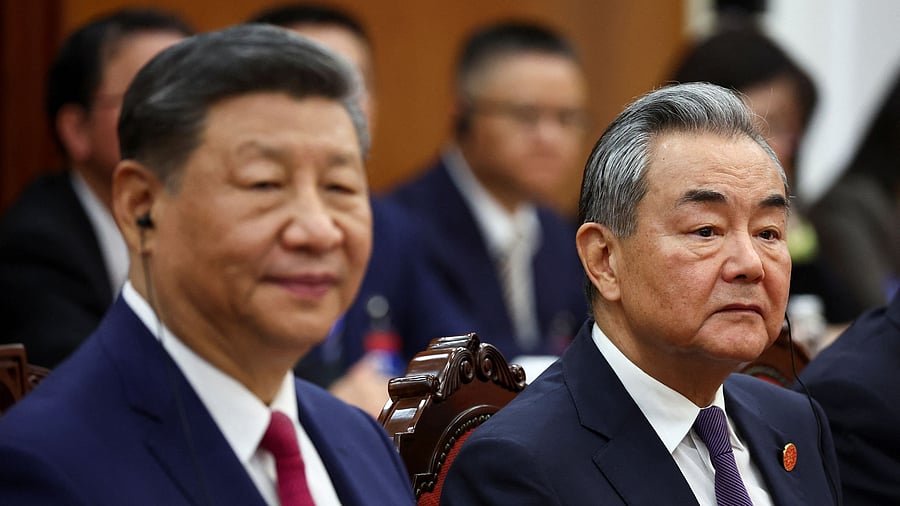
Chinese President Xi Jinping and Foreign Minister Wang Yi
Credit: Reuters Photo
New Delhi: Beijing on Sunday supported Islamabad’s call for an “impartial probe” into India’s allegation about the role of entities in Pakistan in the April 22 terrorist attack near Pahalgam in Jammu and Kashmir.
“China supports an impartial investigation as soon as possible,” the Ministry of Foreign Affairs of the communist country’s government said in a statement issued in Beijing. The statement was released after Pakistan’s Deputy Prime Minister and Foreign Minister Ishaq Dar called Chinese Foreign Minister Wang Yi.
Islamabad suggested that an investigating team comprising experts from China or Russia, or from the countries in the West, should probe India’s allegation about Pakistan’s role in the terrorist attack in Jammu and Kashmir.
“I think Russia or China, or even Western countries, can play a very, very positive role in this crisis, and they can even set up an investigation team that should be assigned this job to investigate whether India or Mr. Modi (Prime Minister Narendra Modi) is lying or he is telling the truth. Let an international team find out,” Pakistan’s defence minister, Khawaja Asif, told RIA Novosti news agency.
He made the comment a day after Pakistan Prime Minister Shehbaz Sharif said that his government was open to participating in any neutral investigation into the April 22 carnage near Pahalgam in Jammu and Kashmir.
New Delhi had only once in the past allowed Islamabad to take part in a probe into a terror attack in India. Prime Minister Narendra Modi’s government had in March 2016 allowed a team of investigators from Pakistan to visit the scenes of attacks that the Jaish-e-Mohammed (JeM) terrorists had carried out inside the airbase at Pathankot in India.
The officials of India’s National Investigation Agency had accompanied the investigators from Pakistan during the tour to the Indian Air Force base.
The exercise, however, had not resulted in any meaningful action by Pakistan against the terrorist organisations known for carrying out attacks in India. The Indian Army, later on September 26 that year, carried out its first publicly acknowledged “surgical strikes” on the camps of the terrorists in the areas under illegal occupation of Pakistan.
India had also carried out an airstrike on terrorist training facilities deep inside Pakistan in February 2019 in the wake of the attacks on the paramilitary personnel by the terrorists at Pulwama in J&K.
“Let's find out who is the culprit and the perpetrator of this incident in India, in Kashmir, talk or empty statements have no effect. There must be some evidence that Pakistan is involved or that these people were supported by Pakistan. These are just statements, empty statements and nothing more,” Khawaja told RIA Novosti.
New Delhi alleged that the preliminary investigation into the killing of the 26 people at Baisaran Meadow near Pahalgam in J&K on April 22 revealed “cross-border linkages”.
The terrorists owed allegiance to the Lashkar-e-Tayyiba and sneaked into India from the areas under the control of Pakistan.
India responded to the latest carnage in J&K by putting in abeyance its 65-year-old Indus Water Treaty (IWT) with Pakistan, revoking visas issued to citizens of Pakistan for travelling to India, shutting down the Integrated Check Post at Attari-Wagah border between the two countries, and further downgrading bilateral relations.
New Delhi also moved to expel Pakistan’s three military officers posted as diplomats at its high commission in the capital of India.
Pakistan also initiated similar retaliatory measures against India.
After New Delhi had in August 2019 stripped J&K of its special status and reorganised the state into two Union Territories, China had joined Pakistan in opposing the move.
